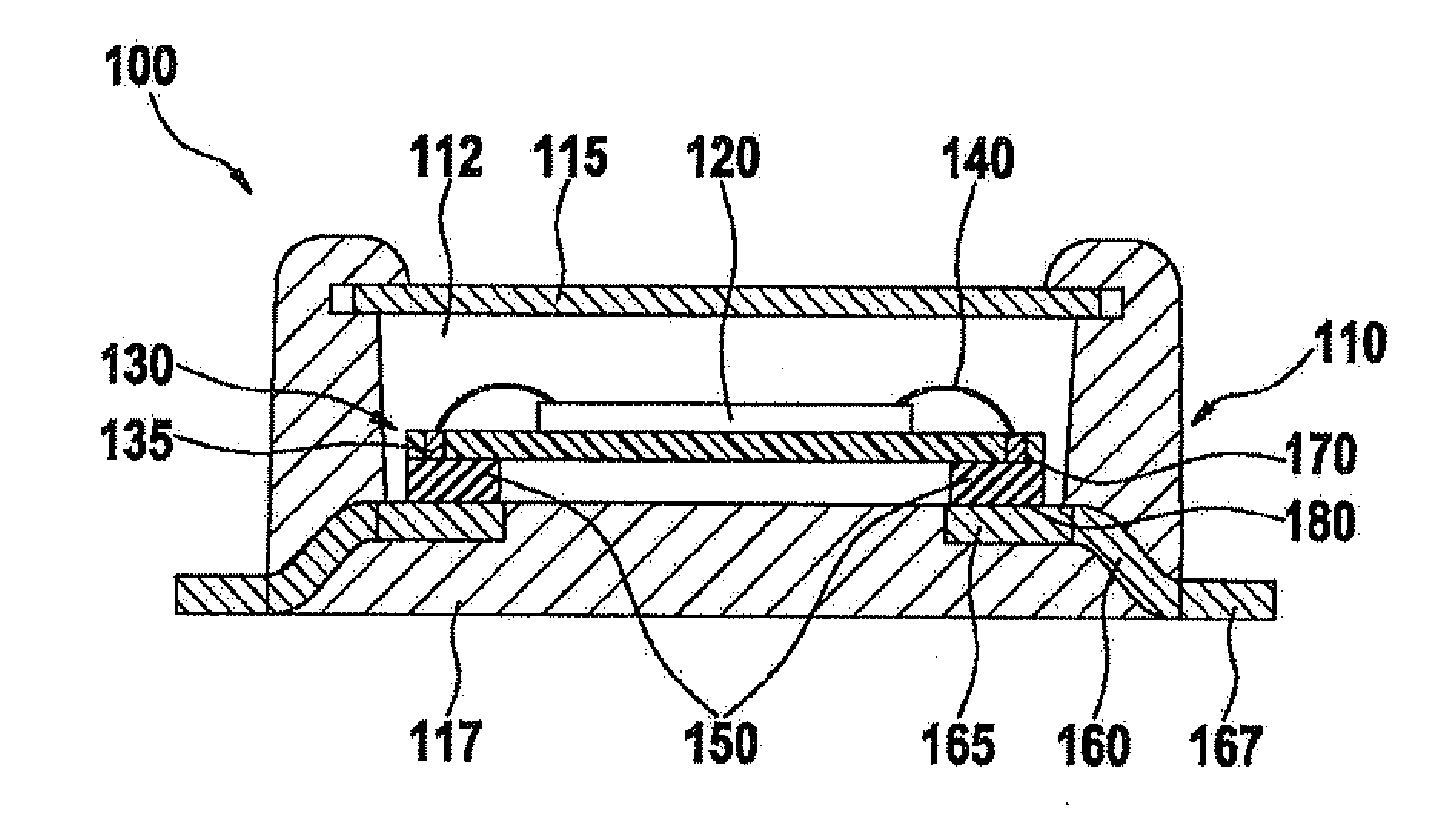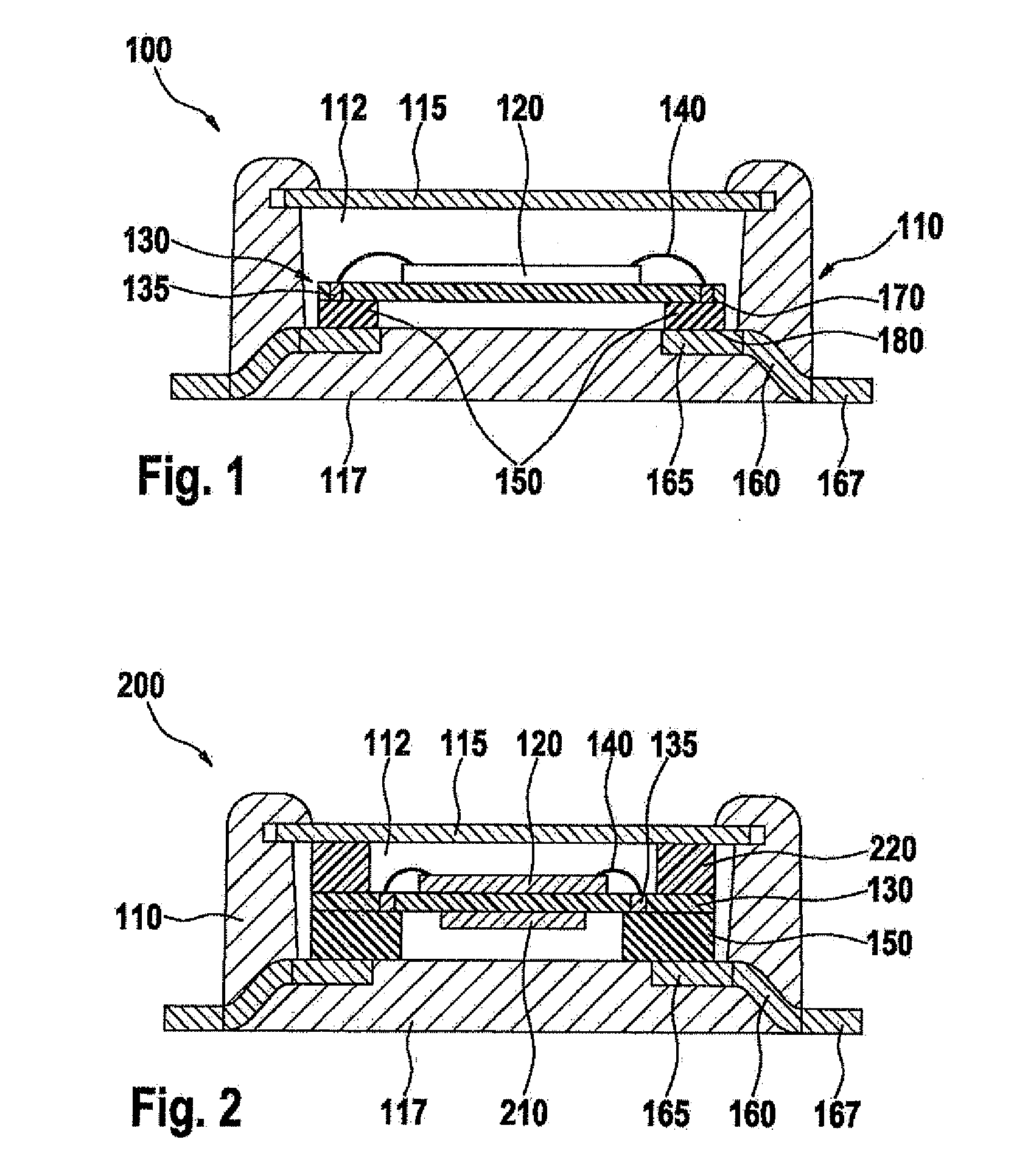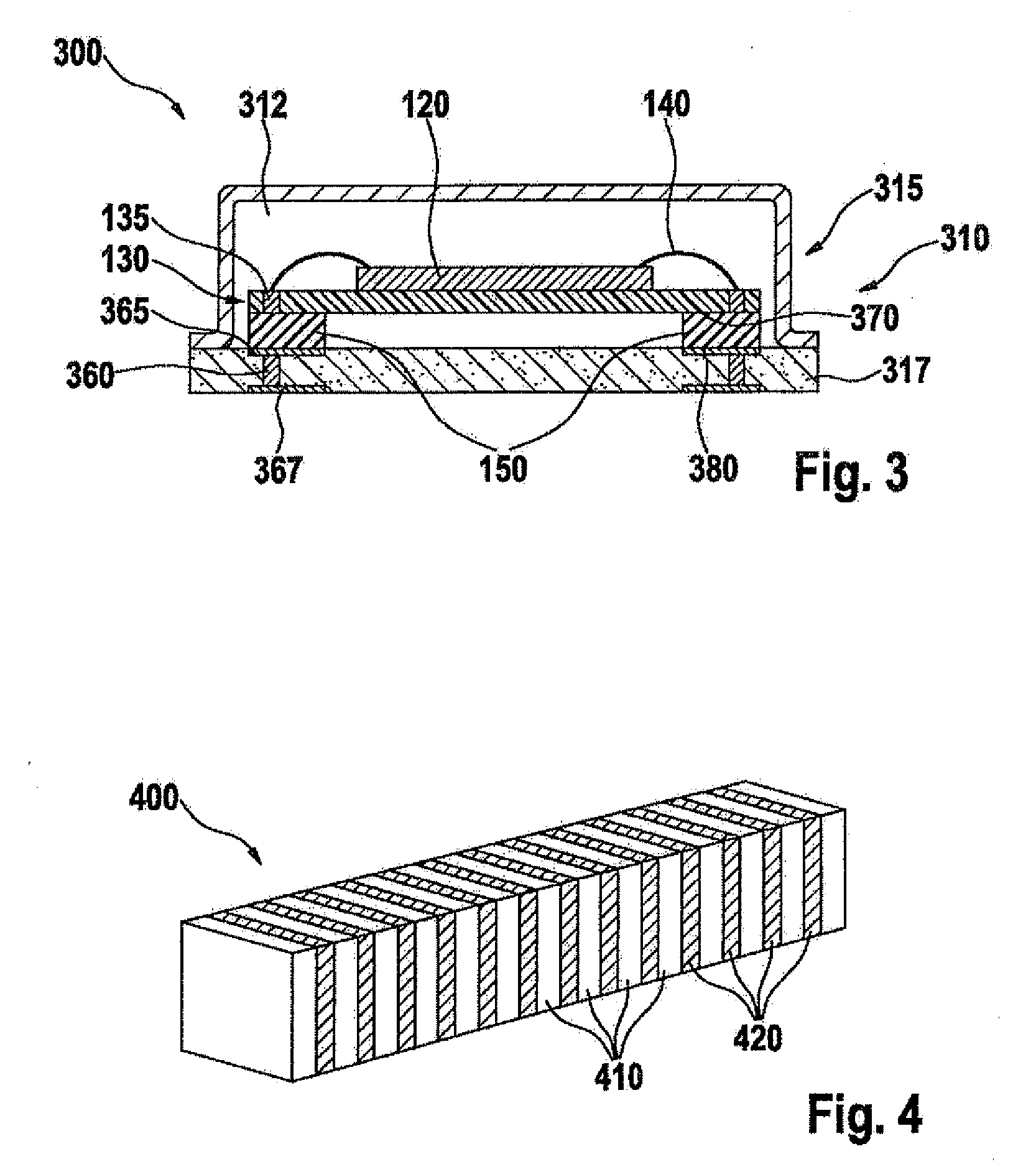Sensor component
a technology of sensor components and components, applied in the direction of measuring apparatuses for damping movement parts, acceleration measurement using interia forces, instruments, etc., can solve the problems of affecting the damping properties of the sensor component negatively, mechanical contact requires a costly assembly, and a certain minimum size of the sensor component, so as to achieve advantageously affordable and improve the damping effect, the effect of preventing the excitation of additional interference modes
- Summary
- Abstract
- Description
- Claims
- Application Information
AI Technical Summary
Benefits of technology
Problems solved by technology
Method used
Image
Examples
Embodiment Construction
[0019]FIG. 1 shows a schematic representation of a section through a sensor component 100, according to a first specific embodiment. Sensor component 100 includes a housing 110 which encloses a sensor chamber 112 between a cover 115 and a floor 117 of the housing 110. Housing 110 may be a premold housing, for example.
[0020]A sensor chip 120 is situated in sensor chamber 112 within housing 110. Sensor chip 120 may have a micromechanical sensor, for instance, an acceleration sensor or a rotation-rate sensor. Sensor chip 120 may also have another type of sensor. On sensor chip 120, evaluation electronics, for instance in the form of ASICs, may already be provided.
[0021]Sensor chip 120 is situated on a substrate 130. Substrate 130 may be a printed circuit board, for example. In the exemplary embodiment of FIG. 1, sensor chip 120 is situated on substrate 130 in such a way that the active sensor components of sensor chip 120 are provided on the side of sensor chip 120 facing away from sub...
PUM
 Login to View More
Login to View More Abstract
Description
Claims
Application Information
 Login to View More
Login to View More - R&D
- Intellectual Property
- Life Sciences
- Materials
- Tech Scout
- Unparalleled Data Quality
- Higher Quality Content
- 60% Fewer Hallucinations
Browse by: Latest US Patents, China's latest patents, Technical Efficacy Thesaurus, Application Domain, Technology Topic, Popular Technical Reports.
© 2025 PatSnap. All rights reserved.Legal|Privacy policy|Modern Slavery Act Transparency Statement|Sitemap|About US| Contact US: help@patsnap.com



